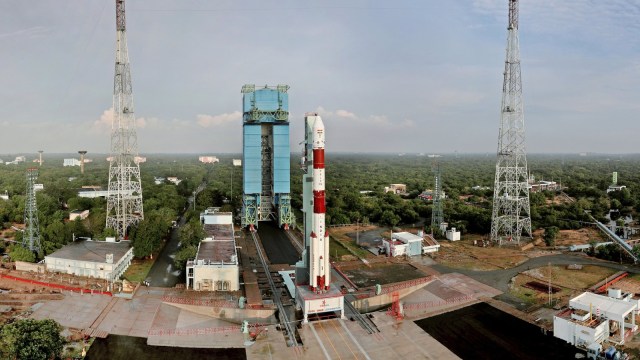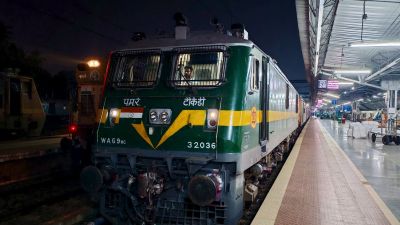Cabinet okays ISRO’s third launch pad at Sriharikota on day of historic SpaDex docking success
The third launch pad at Sriharikota is expected to be built in four years at a cost of Rs 3,984.86 crore.
 The second launch pad was set up 20 years ago, primarily for the launch of heavier vehicles such as GSLV and LVM3, but can also be used as a standby for the workhorse PSLV. (Photo: X/ ISRO)
The second launch pad was set up 20 years ago, primarily for the launch of heavier vehicles such as GSLV and LVM3, but can also be used as a standby for the workhorse PSLV. (Photo: X/ ISRO)The Union Cabinet approved the setting up of a third launch pad at the country’s only spaceport in Sriharikota on Thursday, a day when the Indian Space Research Organisation (Isro) completed its historic docking experiment.
The new launch pad will be required for the space agency to become future ready to use the heavier Next Generation Launch Vehicle (NGLV) that it is currently developing. It will also be essential for India’s plan of setting up the Bharatiya Antariksh Station by 2035 and sending a human to moon by 2040.
The third launch pad will be built with a configuration support of NGLV launches and the current vehicle with the heaviest capacity, LVM3, both of which use semi-cryogenic engines. The third launch pad is expected to be built in four years at a cost of Rs 3,984.86 crore. The cost will cover the setting up of the launch pad and all associated facilities such as vehicle assembly, satellite preparation, and fuelling.
At present, the spaceport in Sriharikota has two launch pads. The first launch pad was set up 30 years ago and is designed to support the launch of smaller vehicles such as PSLV and SSLV.
The second launch pad was set up 20 years ago, primarily for the launch of heavier vehicles such as GSLV and LVM3, but can also be used as a standby for the workhorse PSLV.
The new launch pad will also act as a backup for the second launch pad and can be used for the launch of heavier rockets. It will also help in increasing the frequency of launches from India, allowing the space agency to undertake more commercial as well as scientific missions.
Importantly, the second launch pad is also getting human rated for the Gaganyaan missions.







